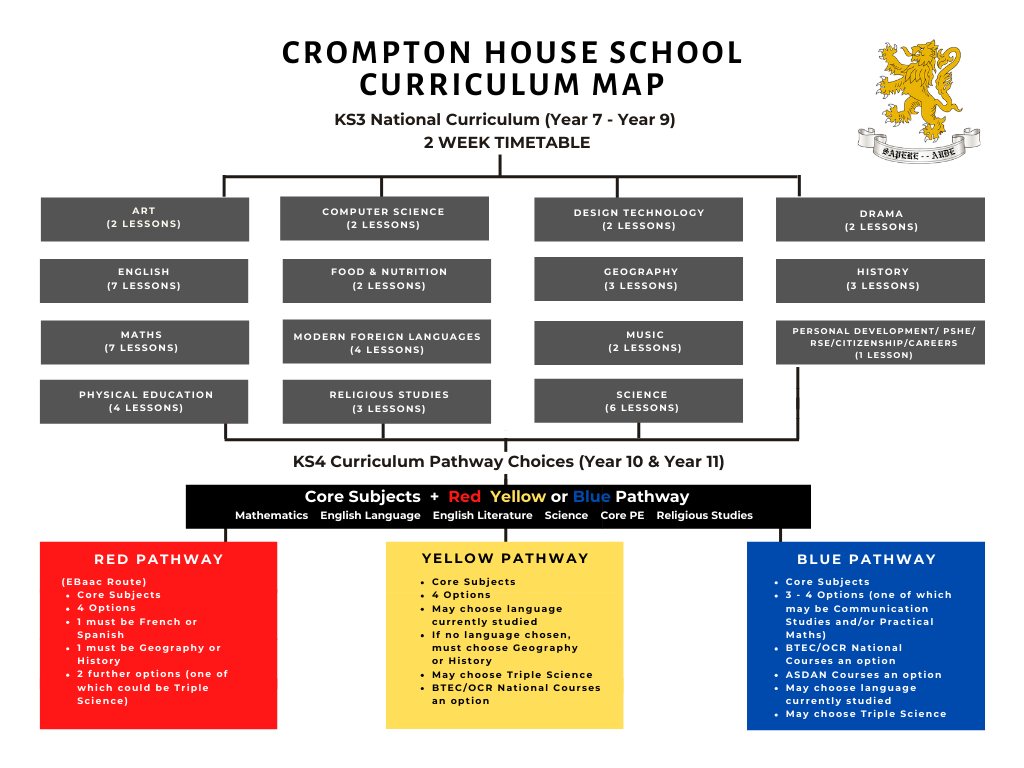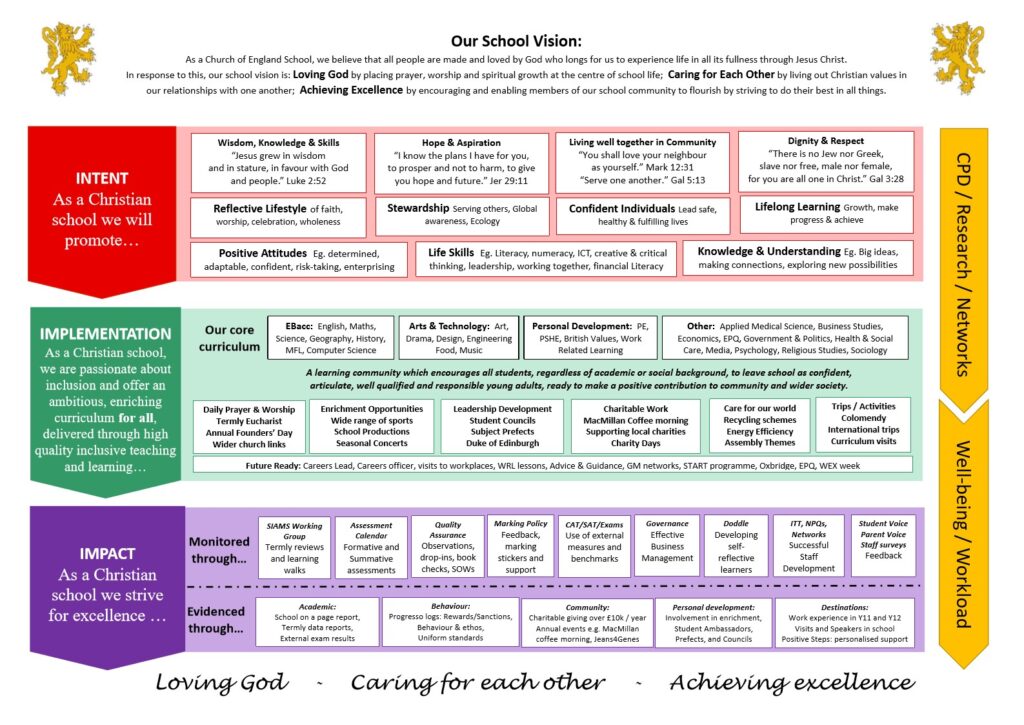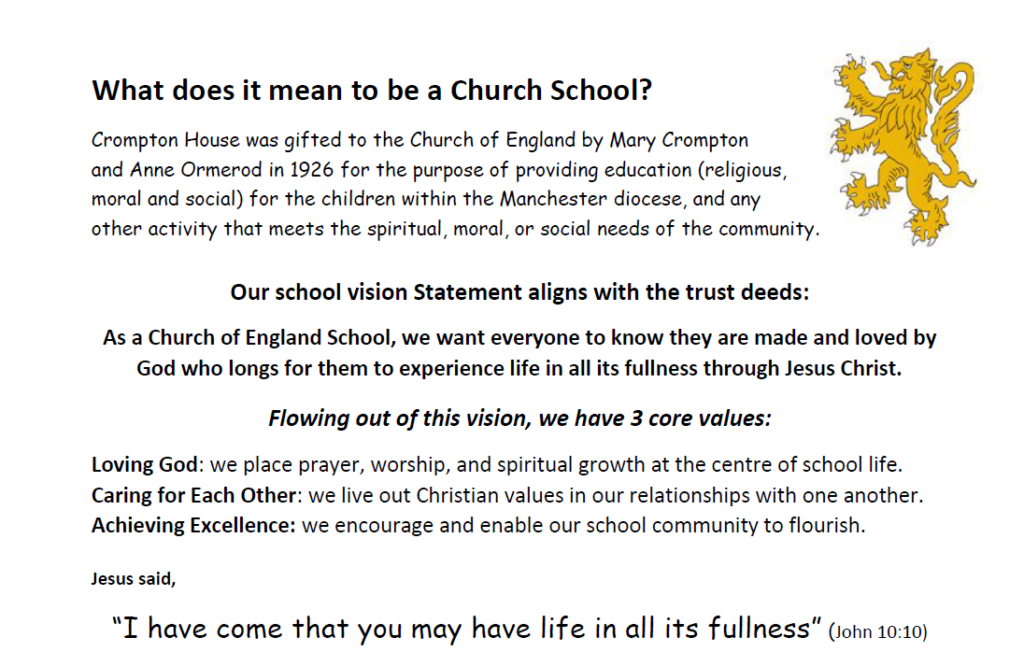Geography
Our intent for the curriculum is to underline and promote the vitally important role that Geography plays in understanding how the world works in an increasingly globalised society and economy. Key stage 3 Geography at Crompton House School is a springboard not just towards further study at GCSE and A level but also to aid our pupils in their journey to becoming well-rounded adults who can contribute positively in their local and global community. Knowledge, application and skills are at the core of our 21st century curriculum. We will support the pupils to develop the essential employability, enterprise & transferable skills in information technology and data/resource analysis and interpretation through the curriculum content and how it is taught and delivered.
Our curriculum will both reflect and learn from the increasing diverse cultural mix of our school and community and also help to enhance our pupil’s cultural capital through the extensive range of topics and themes it will cover. We will also tackle difficult issues, which will give the pupils the opportunity to discuss and debate social, moral, cultural and spiritual questions.
Our aspiration is to deliver a dynamic and modern Geography curriculum in such a way that it fosters an environment and attitude that allows self-reliant, confident and independent learners to flourish. We will set high standards and aspirational targets whilst ensuring that the needs of all learners are supported inside and outside of the classroom.
There are three broad strands within the Geography curriculum that will begin in Key stage 3 and develop towards GCSE and beyond:
- Contextual world knowledge of locations, places & geographical features
- Understanding of the conditions, processes & interactions that explain geographical features, distribution patterns, & changes over time & space
- Competence in geographical enquiry, & the application of skills in observing, collecting, analysing, evaluating & communicating geographical information
- There will be a balance between human and physical geography throughout key stage 3. There will also be studies covering a range of places and scales. The theme of sustainability will feature throughout. We will follow the AQA specification at GCSE and A level.
- Lessons will be a mixture of teacher-led, group work, independent work and IT based projects. The department is well resourced and there is a wide range of print, digital and online resources that we use.
We are confident that through the content of the curriculum and the way in which it is delivered that Geography will have a profoundly positive impact on pupil’s appreciation of the world’s complexities and their own important place within it. We will measure this through rigorous, reliable and accessible assessment. There will be half termly formal assessments, weekly questions and a terminal exam. On-going assessment will occur through teacher monitoring of classwork and discussions with pupils. Outcomes of these will be analysed and discussed within the department and interventions and extra support set up where appropriate. Assessment outcomes will be compared to targets.





